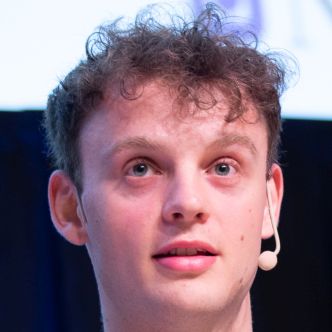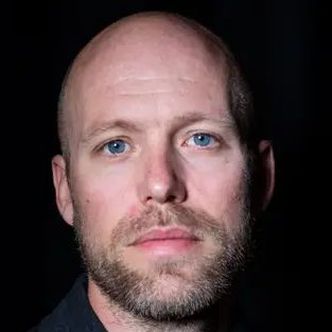Precision medicine

Precision medicine frontiers
Precision medicine represents an evolving paradigm in medicine, where the overarching principle is therapy tailored to the individual patient. New biological insights, increased computational performance, and technological advances, enable the discovery of subtle differences between patients and more targeted therapy. In this session we will learn how new diagnostics, treatment options, and implementation strategies, move the precision medicine frontier towards a healthier future.
Speakers

Open innovation system for precision cancer medicine implementation
Kjetil Taskén
Kjetil will talk about how a precision cancer medicine implementation initiative has been developed for Norway, how this is developing in Europe as a multi-stakeholder, pentahelix initiative, and the way forward in precision cancer medicine.
Biography
Kjetil Taskén has been key in building the national cancer precision medicine initiative for Norway. He won the King Olav V’s Prize for Cancer Research in 2016, the University of Oslo Innovation Prize 2023, and is Vice-President of the Norwegian Academy of Science and Letters. Taskén authors >300 publications (h-index =65) and is inventor of >20 patents. His current research is focusing on tumor immune evasion mechanisms and functional precision medicine for different solid and blood cancers.

Harnessing artificial intelligence to personalize radiation treatment of cancer
Stine Korreman
Over the past 20+ years, large amounts of digital health data have been accumulated, including medical images, biomarkers, treatment records and follow up clinical outcome. Tapping into these data using high performance computing, not least artificial intelligence, may allow us to develop and discover new pathways of care. I will give some examples of the potential to enhance personalized radiation oncology – including choice of treatment modality, sculpting of radiation dose, and continuous adaptation to treatment response – while also supporting equity in treatment for a healthy future for all patients.
Biography
Stine Korreman is a Professor of Medical Physics at Aarhus University and The Danish Center for Particle Therapy (DCPT), Aarhus University Hospital. She is founder and leader of a research group working with Artificial Intelligence and Big Data in Radiation Oncology, with focus on deep learning for image segmentation, data mining in large data sets of images and treatment plans, and individualized risk modelling.
Stine Korreman is actively involved in ESTRO (European Society for Radiotherapy and Oncology), as course faculty and as chair of the ESTRO Medical Physics Future working group on “Artificial Intelligence in Radiation Oncology”, aiming to optimize the quality of AI based treatment and to increase access to radiotherapy. She has a broad international profile with leading roles in collaborative projects, including several EU Horizon2020 project consortia and development projects with the International Atomic Energy Agency aiming to increase global access to radiotherapy.

Prostate cancer - Personalized medicine powered by MRI and AI
Mattijs Elschot
One in six Norwegian men will be diagnosed with prostate cancer during their lifetime. With over 10000 prostate MRI scans per year in Norway, medical imaging plays an important role in the diagnostic care pathway. The challenge is to provide the right treatment to the right patient. Some men suffer from an aggressive form that requires radical treatment, whereas men without life-threatening disease should rather be followed-up without intervention. Precise and early diagnosis is crucial, while screening programs for men at risk are being increasingly advocated by healthcare associations and politicians. However, this will lead to more pressure on medical resources like MRI scanners, radiologists, urologists, and pathologists, which are already strained and difficult to scale up. Innovative solutions are thus needed to meet increasing demands, while at the same time improving patient care, survival, and quality of life. In this presentation, I will share our ongoing research on sustainable systems for diagnosis of prostate cancer.
Biography
Mattijs Elschot is an Associate Professor at the Norwegian University of Science and Technology (NTNU). He has a MSc in Medical Engineering from Eindhoven University of Technology and holds a PhD from Utrecht University (Netherlands). As a researcher working in the field of medical imaging, his ambition is to improve patient care by conducting research on the cutting edge of medical physics, artificial intelligence, and clinical practice. He has vast experience with quantitative and multi-modal medical imaging, (deep) machine learning, and radiation dosimetry in oncology. His current research focus lies on clinical prostate cancer imaging with MRI and PET/MRI, and the emerging role of artificial intelligence in this field.

Personalized treatment in mental health. Predicting response to treatment of sleep disturbances based on AI
Stuart Gallina Ottersen and Nikolaj Khan
Machine learning opens new doors for personalized treatments as it can capture relationships traditional statistical methods cannot. Further explainable AI will allow clinical professionals to combine their knowledge with a model that explains its predictions. We explore the use of these methods in predicting response to treatment in a digital insomnia therapy.
Biography Stuart Gallina Ottersen
Stuart is a PhD student at the Department of Computer Science. He is part of the AI-MENT project in which he works on interpretable/explainable machine learning methods.

Biography Nikolaj Kahn
Nikolaj is a Psychologist with specialization and a PhD-candidate at Nidaros Regional Psychiatric Centre (DPS), St. Olav's Hospital. He is affiliated with the Sleep and Chronobiology Research Group (SACR) at NTNU, and his research is focusing on Depression and chronotherapy. He has many years' experience with clinical treatment of sleep disturbances, in addition to ordinary clinical treatment within psychiatry.
Session Committee
-
Ruth Catharina de Lange Davies Professor
+47-73593688 catharina.davies@ntnu.no Department of Physics -
Åsmund Flobak Associate professor, MD, MSc, PhD
+4772573717 asmund.flobak@ntnu.no Department of Clinical and Molecular Medicine -
Marit Valla Associate professor in pathology
+4772571894 marit.valla@ntnu.no Department of Clinical and Molecular Medicine
